Quirks & Quarks quenches scientific curiosity

The lineup began shortly after 5:30 p.m. By the time the doors to the D.B. Clarke Theatre opened at 7 p.m., that lineup had attracted more than 350 people.
Luckily Matthew Casbourne and Alexandre Hudon of the Garnet Key Society helped guide audience members to their seats. Young or old, academics or merely curious, one thing united the assembled — a keen interest in science and an even keener interest in participating in the taping of a favourite CBC Radio show.
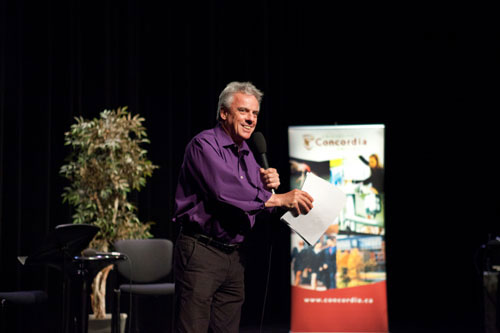
Provost David Graham welcomed Quirks & Quarks host Bob McDonald, noting that CBC’s science show has been on the air and winning awards for 35 years. Graham highlighted the shared goal of Concordia and the program — providing an excellent education in science in the most engaging manner possible.
McDonald’s trademark energy, smarts and humour were quickly evident as he bounded onto the stage to get the show rolling and welcomed questions from audience members.
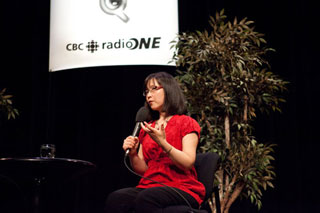
Over the last few weeks, the production team looked through more than 100 questions, sifting out subjects that had already been addressed in past shows. In the end, 11 made the final cut.
Ten-year-old Jacynthe Poupart-Miller was first up with a question about why geese make their distinctive honking call. Concordia’s Director of Health Services, Melanie Drew, asked whether colours are perceived differently by different people. A regular CBC Radio listener, Drew says she was thrilled when her question was selected.
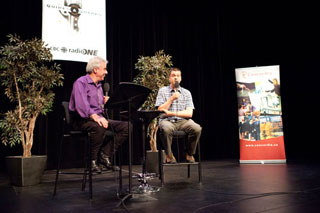
“It somehow validated that it wasn’t a crazy notion or query. I thought that the format of this particular show was very engaging; the audience felt a part of the whole episode and the scientists chosen came across as real educators hoping to help the audience understand the answers.”
Those “real educators” included three researchers from Concordia’s Biology Department. Dylan Fraser clarified why similar species of fish are found in different waterways that are separated by land.
Madoka Gray-Mitsumune explained the process by which fruit ripens and the effect that ripening has on a fruit’s nutritional value.
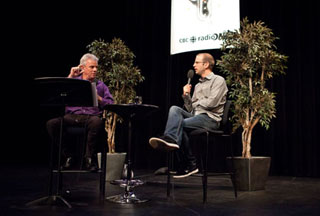
David Walsh tackled a tough question about the characteristics of viruses and helped the audience understand more about how the common cold can attack year after year.
The expertise and creativity of the D.B. Clarke Theatre’s technical team, led by Norberts J. Muncs, supported the CBC crew to produce a show that delighted both its live audience and radio listeners across the CBC network, public radio stations in the United States and podcast followers the world over.
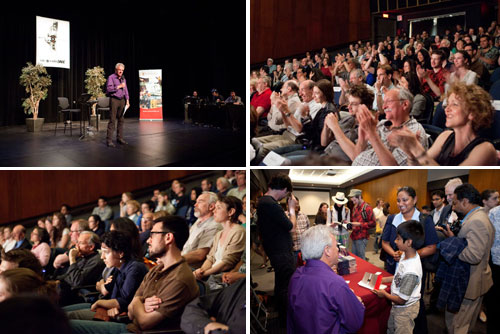
Related links:
• Listen to the Quirks & Quarks show recorded in Concordia’s D.B. Clarke Theatre
• Concordia’s Department of Biology